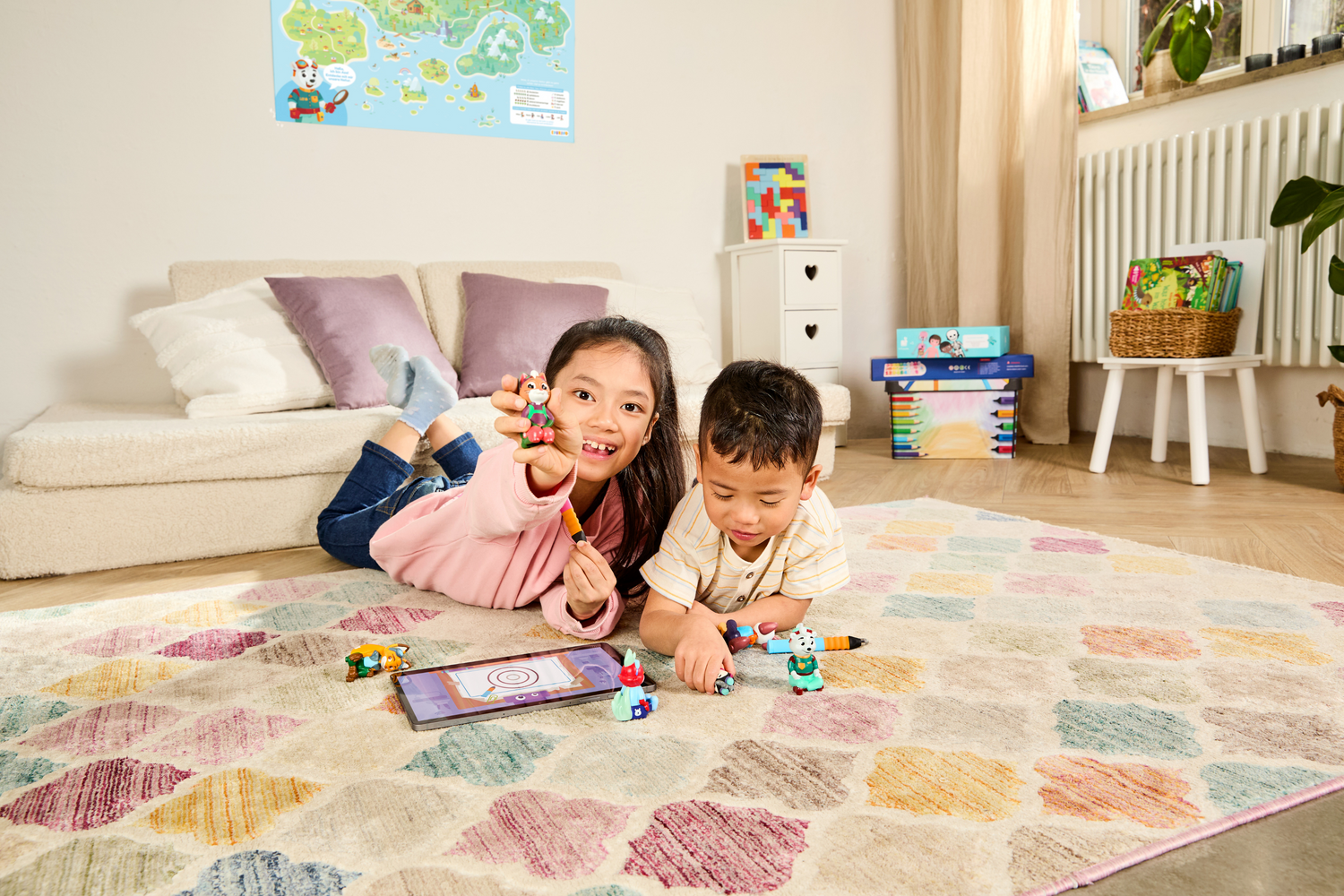Productive half term activities to make the most of your break
When it comes to half term and school breaks, some parents may be feeling overwhelmed at the thought of having to now fill their children’s day.
With an extra 8 hours a day on your hands, it can be stressful to work out what you can do that will be both fun for your child, and fulfilling for their development.
To help parents occupy their children in a mindful way, we at EDURINO have put together our top productive kids activities for when they’re off school.
Set up a craft table to encourage visual learning
A craft table is the perfect station to set up during the week your child is away from school. With endless opportunities, it will inspire hours of fun and be a fixture that children can come back to each day, whenever they like - developing their sense of independence.
Crafting is a great way to encourage your children’s fine motor skills, and improve hand-eye coordination and visual learning, and can be done with parents alongside or as independent play, making it perfect for any parents that are working this half term.
Set up your children with crafting supplies such as:
- Pens and paper
- Glue and scissors
- Glitter, felt and wool
You can even include bits of nature in your craft table such as flowers, leaves, pinecones and conkers.
The perfect activity for craft kids - have your child create themselves a crown out of leaves. Depending on their level, this could either involve glueing leaves to a strip of paper to form a crown, or for older children with more advanced motor skills, using the stems of the leaves to form a weave - similar to creating a daisy chain.
Junk modelling is also a great way to encourage creativity in children - collect any old cardboard boxes, yoghurt pots, toilet roll tubes and encourage your kids to turn these bits of “junk” into items such as cars, rockets and castles.
Explore outdoors kids activities and boost motor skills
Outdoor kids activities have been found to improve children’s mood and behaviour hugely.
Getting outside on a walk can encourage creativity, critical thinking and focus, and helping with motor skills - so grab your boots and head out on an adventure.
To encourage your children to engage while on your walk, make sure you involve them in the journey. You can let them read your map to encourage their navigational skills, this can also give them a sense of responsibility on your walk and make them feel more capable.
Create some educational games for your walk where you spot birds or bugs, you can even bring along a magnifying glass so they can see all the nature up close - encourage them to look under any stones or logs that you see!
Before you head out, you can also print pictures of certain wildlife to see if you can spot any along the way. Once they’ve identified them, you can teach your kids any fun facts for the animals and bugs they spot.
You can also equip them with a matchbox, and let them bring any safe, tiny treasures from nature with them.
Engage in mindful kid’s screen time
Screen time for kids can be a taboo subject for some, but screen time is not always a bad thing, in fact, previous research (1) from EDURINO has found that 90% of primary school parents do feel that it’s important for their child to develop strong digital learning skills.
The key is ensuring that any kid’s screen time is mindful, rather than purely encouraging dopamine responses. Try to aim to:
- Opt for interactive learning games for kids that combine digital fun with physical learning
- Set limits and encourage regular breaks away from the screen, and use games that come with a time limit to minimise any temper tantrums at the end of play
- Be in the know about what your child is watching or playing
Encourage independent play to free up your time
Setting up individual kids activities and tasks for your child can encourage independent play and creativity. Independent play is hugely important for children, as it will help foster their imagination, build problem-solving skills, and teach them patience and resilience.
Depending on your child’s age, you could:
- Challenge them to create a song or dance for you to watch as an audience member
- Give them a puzzle to solve. For any educational games, make sure there is an element of challenge for your child but also ensure that it fits their abilities - a game too easy or hard can mean they’ll give up!
- Set them up with a treasure hunt around your home and garden. The clues can be as easy or hard as you design it to be - you could have clues such as “The next clue is hidden with chilling food” and lead them to your fridge, or you can go further into riddles to really quiz them!
Bake some treats to build reading and maths abilities
A key way of developing your children’s fine and gross motor skills, baking can be similar to sensory play for some children - so don’t be afraid of mess!
You can also use this as an opportunity to enhance their reading and counting abilities by having them follow along with the recipe.
Go for more straight-forward recipes such as fairy cakes, iced biscuits or cornflake cakes to allow your child to really get involved and have a sense of ownership in the task.
For smaller children, ensure they’ve got a secure step to stand on so they can feel engaged in the
1 The research was carried out online by Research Without Barriers – RWB, between 27th September 2023 and 2nd October 2023. The sample comprised 1,000 UK parents of 4-8-year-olds. All research conducted adheres to the UK Market Research Society (MRS) code of conduct (2023). RWB is registered with the Information Commissioner’s Office and complies with the DPA (1998)








